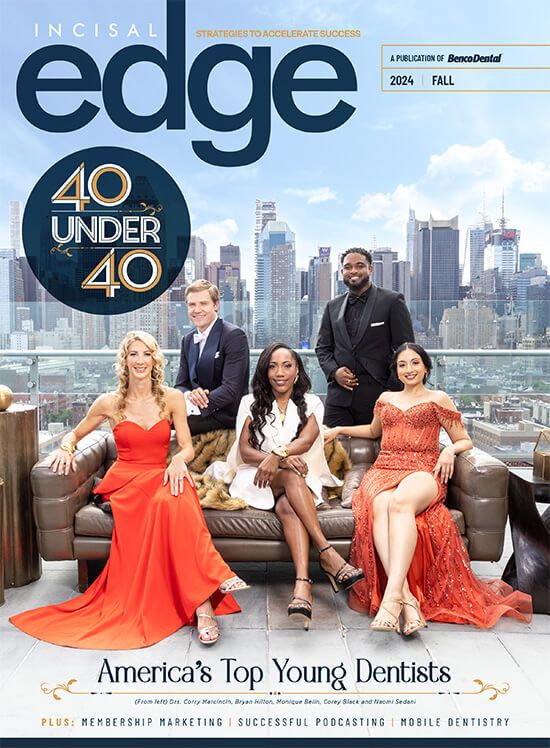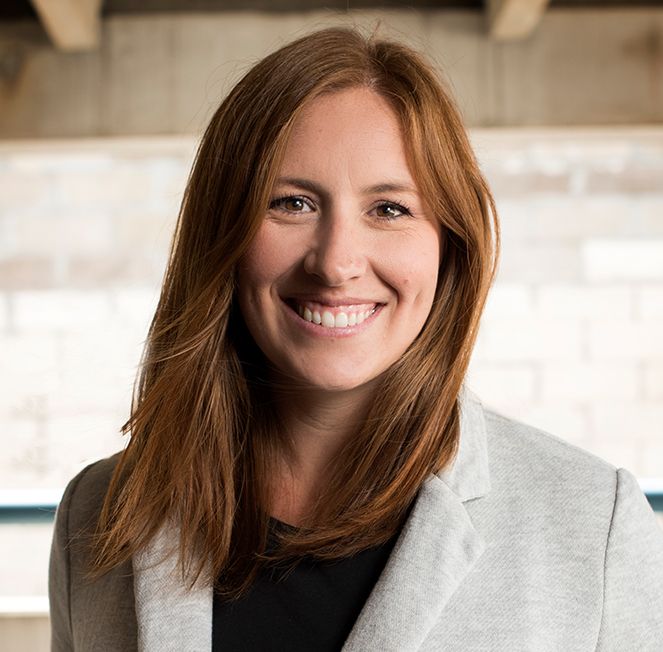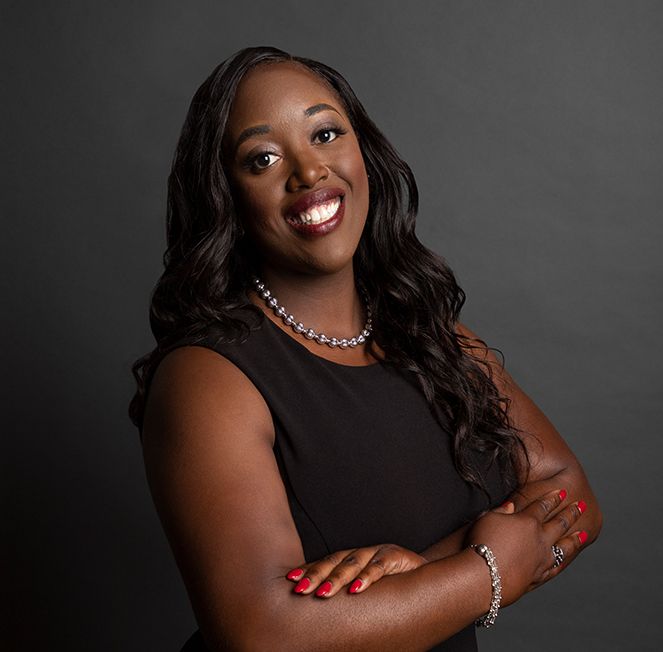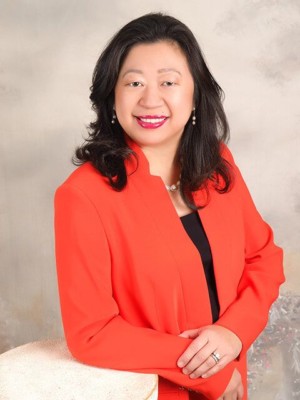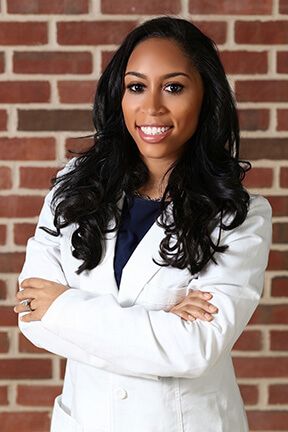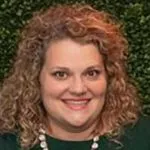The Lucy Hobbs Awards themselves are limited to a half-dozen worthies each year, but the number of women in dentistry who are driving change through their professional expertise, medical advances and concern for the less fortunate are uncountable. Here are ten additional notables whose efforts are making our profession—indeed, our world—a better place for all.
by Leah Cohen and Kristie Ceruti
CHERIE LE PENSKE
Bringer of The Light

WE WANTED TO HELP DENTISTS FIRST. I SAID TO MY TEAM, ‘THESE ARE MY PEOPLE.’ ”
– Cherie Le Penske
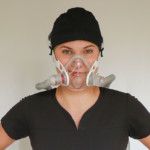
The mask prototype took about eight weeks of steady labor by Le Penske and her team to create. “All our businesses were dealing with the pandemic,” she recalls of last spring. “At Armor Dental, we had just made a great year in sales, 2020 was starting out great—and then all of a sudden every dental office was closed. As a leader, what do you do? As a business owner you have to dig deep.”
The answer arrived during—of course—a Zoom call in Le Penske’s home office in Hingham, Massachusetts. She and engineering consultant Lisa Fitzgerald were discussing an Armor Dental product when Le Penske caught a glimpse of something on Fitzgerald’s 3D printer. “Lisa mentioned an idea around a better mask for her husband—who, with cancer, is at high risk. My husband, David, has a life sciences background and has been in health care for 30 years, so I pulled him into the conversation.”
In a trice, Le Penske assembled legal, regulatory and marketing teams. “I raised money within the blink of an eye, we manufactured the product, filed for the patents and around May or June started testing the breathing.” The formal product launch was set for November, just
after press time.
Clara’s patent-pending cross-ventilation system offers the wearer filtered air with every breath, allowing fresh air to pass through the clear, airtight mask, reducing both fogging and CO2 buildup. Air remains cool inside the mask, as exhaled air is not trapped within.
“When Covid hit, many dentists were open for emergencies,” Le Penske says. “They’re lowest on the totem pole to get [personal protective equipment], so we wanted to help them first. I said to my team, ‘These are my people.’
“I’ve been told by numerous clinicians that they’re not breathing well enough,” Le Penske continues. “They’re working long hours and are exhausted, hot and irritable from all the PPE.”
Clara comes in four sizes, with ratchet levers on each side for precise adjustments (and a tight seal) around the wearer’s nose and chin. The system, manufactured in Massachusetts, is naturally aspirated, requiring no battery or fan, and features HEPA filtration that will be replaceable via monthly subscription. It eliminates 99.97 percent of bacteria, viruses and particulate matter.
In addition to better breathing, Clara promotes a better chairside manner. “In our pilot [tests] with dentists, we’ve found that when [patients] see a clear mask, they can see the clarity of the physician. [The doctor] can have better empathy—you can show the patient that you’re listening with your eyes and your face.”
Le Penske’s role model throughout her career has been her late mother, a dental assistant for 40 years who also worked nights as a waitress to make ends meet for her three children after her husband passed away. “She’s not here [anymore],” Le Penske says, “but when I invent, I want to make her proud.” She adds, “The brand is about bright new beginnings. When I think of the word Clara, I hope we bring brightness to our customers.” —Kristie Ceruti
KATTI WEBB SIMPSON
Road Warrior
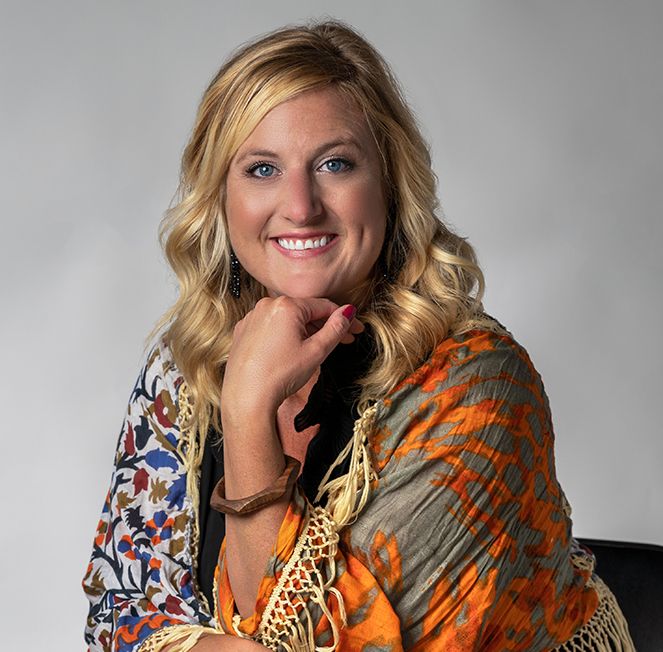
Over the years, I’ve found there’s a real niche for mobile dentistry here.”
– Katti Web Simpson
When the pandemic emerged in early March, Simpson, 42—who was honored with the Lucy Hobbs Clinical Expertise Award in 2014—was forced to adapt further still, in an inversion of her previous situation. “I shut down my stand-alone office and reassessed my plan,” she says. “Over the years, I’ve found there’s a real niche for mobile dentistry here.” She can give cleanings to patients who might otherwise neglect their oral health entirely—and while she can’t formally diagnose conditions, she can strongly advise those she’s treating to seek further care.
Case in point: Not long ago, a patient at Simpson’s mobile unit—making his first dental visit of any kind in years—presented with what she suspected was oral cancer. She urged him to see a specialist; he traveled to Boston, a journey of some 235 miles, received the care he needed and has been profoundly grateful to Simpson ever since. “He runs a local agricultural paper, and came by just the other day to show me the latest issue,” she says. “Complete with a huge ad for my business.”
It’s all in a day’s work for this exceptional hygienist who, fully mobile, can reach areas of her oft-neglected community (and state) that are hard up for access to dental care of any kind. She forges long-lasting bonds with her patients that keep them coming back, inculcating the virtues of regular oral care and leaving them with better health and plenty to smile about. —Leah Cohen
LISA FITCH + LAURA BORST
Smile Facilitators
“Never in a million years did I think I’d be in the dental field,” Lisa Fitch says, as Laura Borst nods in agreement. The two are the powerhouse leaders behind Give Back a Smile, an American Academy of Cosmetic Dentistry program that works to “connect adult survivors of domestic and/or sexual violence who’ve received dental injuries from the abuse with volunteer cosmetic dentists who donate their time and services to restore their smiles,” according to the AACD.
Both Fitch (left), the director of charitable foundation for Madison, Wisconsin–based Give Back a Smile, and Borst, its case manager, have backgrounds in social work. They’ve both also worked with victims of domestic violence but were surprised when that path led them in a dental direction. “A lot of what we do sheds light and awareness on domestic violence and how it relates to oral health care,” says Fitch, who oversees the program. Survivors, she notes, often struggle to get a job because poor oral health is sometimes assumed to be linked to drug abuse rather than a result of domestic violence.
Borst works with applicants to connect them with a volunteer dentist who can treat them and help give them the confidence boost they surely need. “One woman told us she took family photos for the first time in 10 years,” Fitch says. “We want to continue helping survivors thrive.”
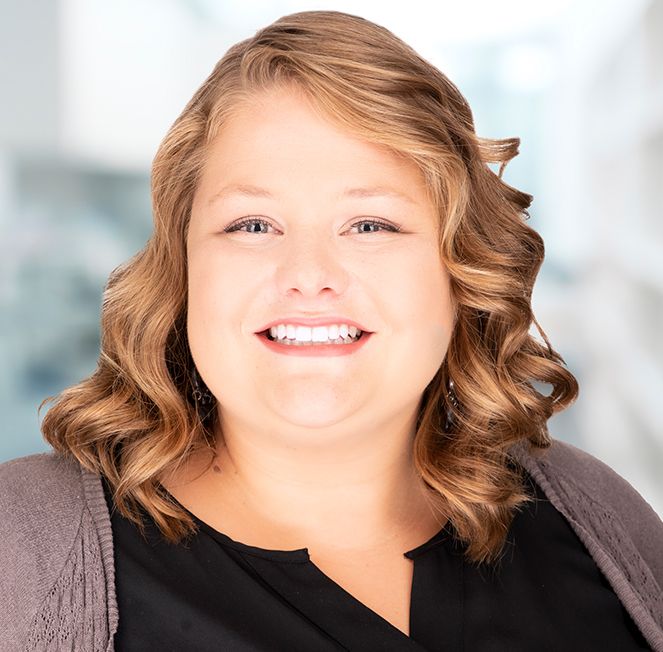
Since 1999, Give Back a Smile has helped some 1,800 women around the country—and with these two stars at the helm, not even the pandemic can halt its momentum. “We want to continue to support survivors the best we can with care and resources,” Borst says. “We are still in a position to help people.” —L.C.
A lot of what we do sheds light and awareness on domestic violence and how it relates to oral health care.”
-Lisa Fitch
KAJUANA FARREY SUTTON
Teacher, Mentor, Healer
Captivated by dentistry at a young age to the degree that she always knew that’s what she wanted to do for a living, Dr. Kajuana Farrey Sutton is now on a quest to enchant the generation after her toward the same end. “My father had dental work done at a young age. It [deeply affected] him, and my visits to the dentist had an impact on me,” she says. “It reminds me that we were once part of the need. I want to give back to my community in the same way.”
As soon as Dr. Farrey Sutton graduated from the Medical College of Georgia’s School of Dentistry in 2009, she started putting that ambition to work. When the doors opened on West Albany Dental and Medical Center in Albany, a town in southwestern Georgia, that same year, Dr. Farrey Sutton became the first African-American female dentist in the country to cofound a dental community health center. “I designed the center, oversaw construction, put together an office plan and wrote the dental directory,” says Dr. Farrey Sutton, 37.
The facility has been an enormous success; it and two others she has opened now treat some 14,000 patients. Yet Dr. Farrey Sutton—a member of the Incisal Edge 40 Under 40 in 2019—still makes time to pursue her goals. “When I was a 40 Under 40, I was just opening my dental-assistant school,” she says of the Georgia Dental Education Institute, another two-office initiative of hers. “With Covid putting so many out of work, people are looking for career changes.”
As such, her school has provided a number of young people with new opportunities amid the general gloom of the past year. Dr. Farrey Sutton views dentistry as something she genuinely enjoys doing regardless of circumstance, and she wants to inculcate that passion in her students. “Between my practice, the dental health center and my dental assistant school, it’s challenging,” she observes. “But it’s working, and we’re finding success and helping others do the same.” —L.C.
MY PRACTICE, THE HEALTH CENTER, SCHOOL: IT’S challenging, but it’s working, and we’re finding success and helping others do the same.”
– Dr. Kajuana Farrey Sutton
LINDA NIESSEN
Founder and Pioneer
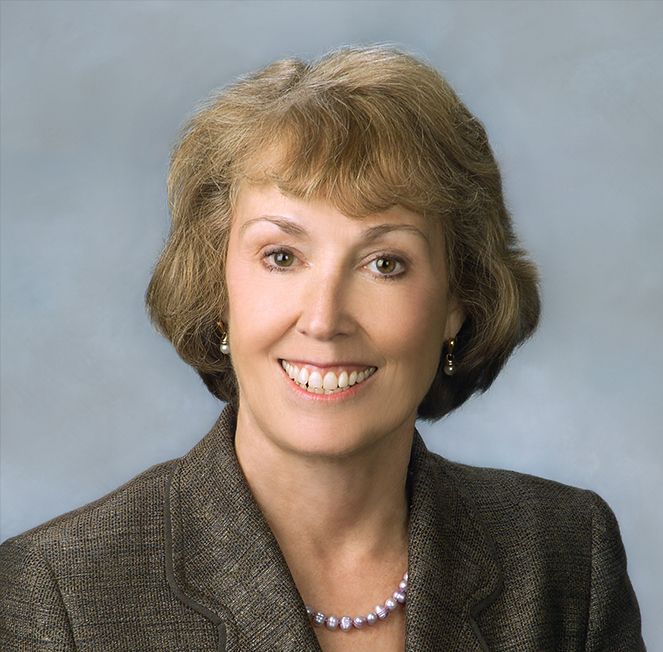
BEING THE FOUNDING DEAN OF A DENTAL SCHOOL IS AN EXCITING OPPORTUNITY THAT DOESN’T COME AROUND TOO OFTEN. AS SOON AS I INTERVIEWED, I KNEW IT WAS A FIT.”
– Dr. Linda Niessen
Building a dental school from the floor up—KCU Dental is scheduled to open its doors to its first class in 2022—is no small task, and Dr. Niessen has been hard at work devising a curriculum, hiring faculty, ensuring Covid-safe facilities and a thousand other tasks. “This is an exciting opportunity that doesn’t come around often,” she says. “As soon as I interviewed, I knew it was a fit.”
It will take $80 million to open the school, half of which will come via philanthropy; some $30 million has been raised that way so far. “ [Joplin] is a city that’s interested in economic development and health improvement,” Dr. Niessen observes. “That gets your attention: The community is committed.”
To fulfill the school’s mission to be an extraordinarily student-centered university while also boosting the health and well-being of those living in the area, Dr. Niessen is designing “InterProfessional Education” courses in which students will be enrolled in both the Doctor of Psychology and College of Osteopathic Medicine programs jointly. “We want to make sure our students are knowledgeable and integrate systemic and oral health,” she explains. “The program will teach patients about oral health and staff about changes in dentistry.”
Such pathbreaking work is standard procedure for Dr. Niessen. At the start of her career, she notes, she was frequently the only female in the room, whatever the context. She has always wanted to model for others that it’s possible to have a rich home life and a strong, vital career simultaneously. “I did this as a woman and worked full-time to have a successful family and career,” she says. “I think young women need to see that. They are still struggling.” That may be so—but the example of Dr. Niessen, a tireless pioneer, offers great hope for the female dentists and academics of tomorrow as well. —L.C.
CATHY HUNG
Advocate for Diversity and Inclusion
Having navigated dentistry as an outlier in more ways than one, Dr. Cathy Hung strives to provide comfort and acceptance to everyone in her operatory – and in her path.
“My whole life story is about being the minority and being different,” explained the clinician, coach, speaker and bestselling author. After immigrating alone to the United States from Taiwan at just 18, she channeled her efforts into higher education. First, she earned a bachelor’s degree in psychology with a minor in music at the University of California, Berkeley, and a dental degree at Columbia University’s College of Dental Medicine and then completed the Oral and Maxillofacial Surgery Residency Program at Lincoln Medical and Mental Health Center in New York.
“Being an Asian female in a male-dominated specialty, I have had to try to convince others that I can do the job. But I feel that diversity has never been more important than now.”
-Cathy Hung, DDS, Dip. ABOMS
Today, Dr. Hung draws on her past experiences to educate others on diversity and inclusion, even authoring a book on the subject. An Alumni of the ADA Institute for Diversity in Leadership, she leads one-on-one coaching sessions and professional workshops, and participates on the New Jersey Dental Association Social Media Task Force.
“I feel that in healthcare, we don’t talk much about this issue, and it is an everyday issue,” she said, referencing immersion into the American culture. “My goal is to help other people gain insight on how to become more comfortable in multicultural environments.”
In her New Jersey practice, Prospect Oral Surgery Center, while treating a patient who immigrated to the U.S. from Egypt, Dr. Hung worked through the language barrier to uncover the source of the woman’s pre-treatment anxiety.
“She told me that in Egypt she knew of people who died from dental extractions.” said Dr. Hung. “I took the time to listen to her and hear her story. Our differences didn’t matter – she knew I cared because I took the time to understand her concerns.”
Through her books, radio shows, and speaking engagements, Dr. Hung wants to drive one thing home: Diversity is a topic for everyone.
“I am an American now, and I am helping others. This is a lifetime commitment.” -L.C.
Angela Cotey
Deliverer of Hope
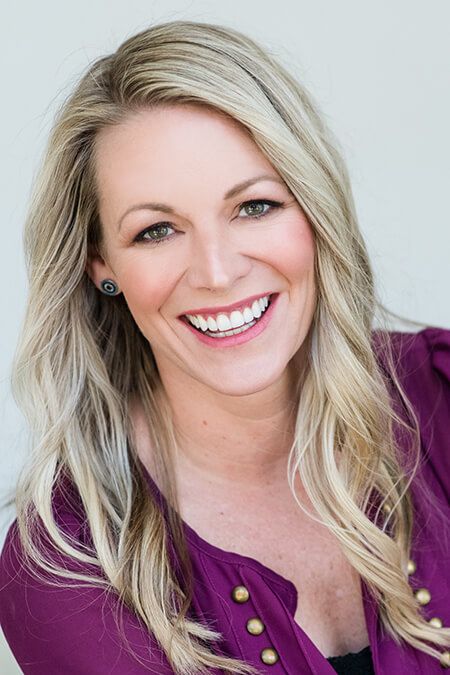
“A lot of kids have either not seen a dentist or the dental care they have received is not as good,” Dr. Cotey explained. “We see a huge confidence boost in the kids after they receive treatment.”
A self-conscious, 15-year-old boy with an extra tooth at the front of his smile underwent treatment at Dr. Cotey’s practice. Following an extraction, he could not stop smiling.
Dr. Cotey hopes that patients and other dentists will follow her lead and find a way to give back.
“It is so rewarding and important to give back in our careers. Looking for the local need is a great place to start getting involved.”
-Dr. Angela Cotey
Despite the uncertainty of COVID-19, Dr. Cotey has not put her efforts on hold and recognizes that the need to serve one’s community is greater now than ever.
Tera Poole
Change Maker
Dr. Tera Poole is the dental industry’s unassuming leader. In 2016, she made headlines as the first Black valedictorian at the University of Maryland School of Dentistry in the school’s 180-year history.
“I didn’t think much of the honor until I saw the impact,” Dr. Poole said. “I could see the impact it made on other people to see someone like them in my position.”
Today, Dr. Poole recognizes the importance of her influence. During her orthodontic residency, a 10-year-old, Black youngster arrived at an appointment with his mother. Upon greeting the orthodontist, the boy’s mother said something to Dr. Poole she will never forget: “I am so glad you are Black. I need my son to see that you are a doctor. I am so glad he gets to see you in this role.”
More recently, Dr. Poole was approached by a former patient about the possibility of applying to dental school.
“Not only did I encourage her, but I also paid for her application fee to apply to the University of Maryland.”
When asked how she is advancing the field of orthodontics, Dr. Poole discussed two ways. The first, as the clinical Director of Uniform Teeth, a new San Francisco orthodontics clinic, Dr. Poole set a goal to modernize orthodontics through the use of new technologies. The second, as a Black female in a specialty field, she continues to give back to her community and serve as a mentor for others.
“There is always someone behind you who wants to make it as well. Clear the path for them too so they can surpass you.”
-Dr. Tera Poole
-L.C.
Sara Haines
Dedicated Leader
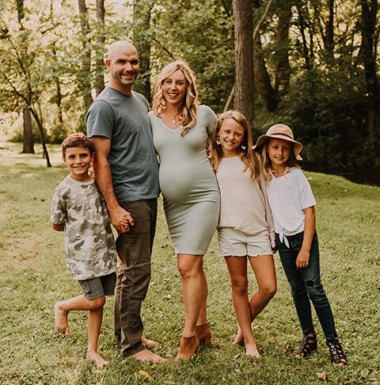
“I was involved with the American Dental Hygienists Association (ADHA) from the start. When I switched to dental school, I ran for the local position in the American Student Dental Association (ASDA) chapter,” Dr. Haines said. “It seemed very important for me to stay involved.”
In her years at the University of Pittsburgh, Dr. Haines’ most rewarding moment was derived from knowing she had contributed to building a strong organization to hand over to the next group of leaders.
“I felt I led by example,” she said.
“Outreach and service projects I had been involved with were used by incoming leaders as scaffolding for the future of the organization.”
-Dr. Sara Haines
During the past 11 years of private practice, Dr. Haines has involved herself within the local Harrisburg Area Dental Society.
“As a solo doctor, it’s nice to have a network of leaders who promote our profession,” Dr. Haines explained.
She emphasized the importance of local involvement as a dentist.“Be aware of the organizations around you,” she said. “They are there to support our profession.”
Speaking from the experience of 15 years of volunteerism and leadership roles, Dr. Haines encourages dental colleagues to immerse themselves in local organizations.
“Because of the proximity to your area and community issues, local and state leadership is where we can see the most outcome.”
